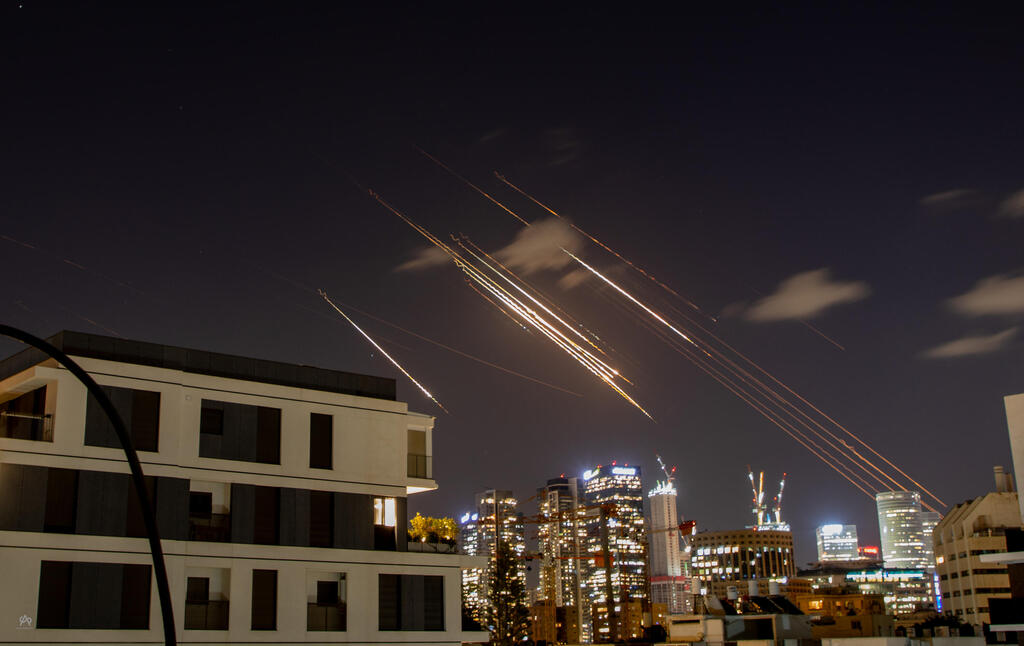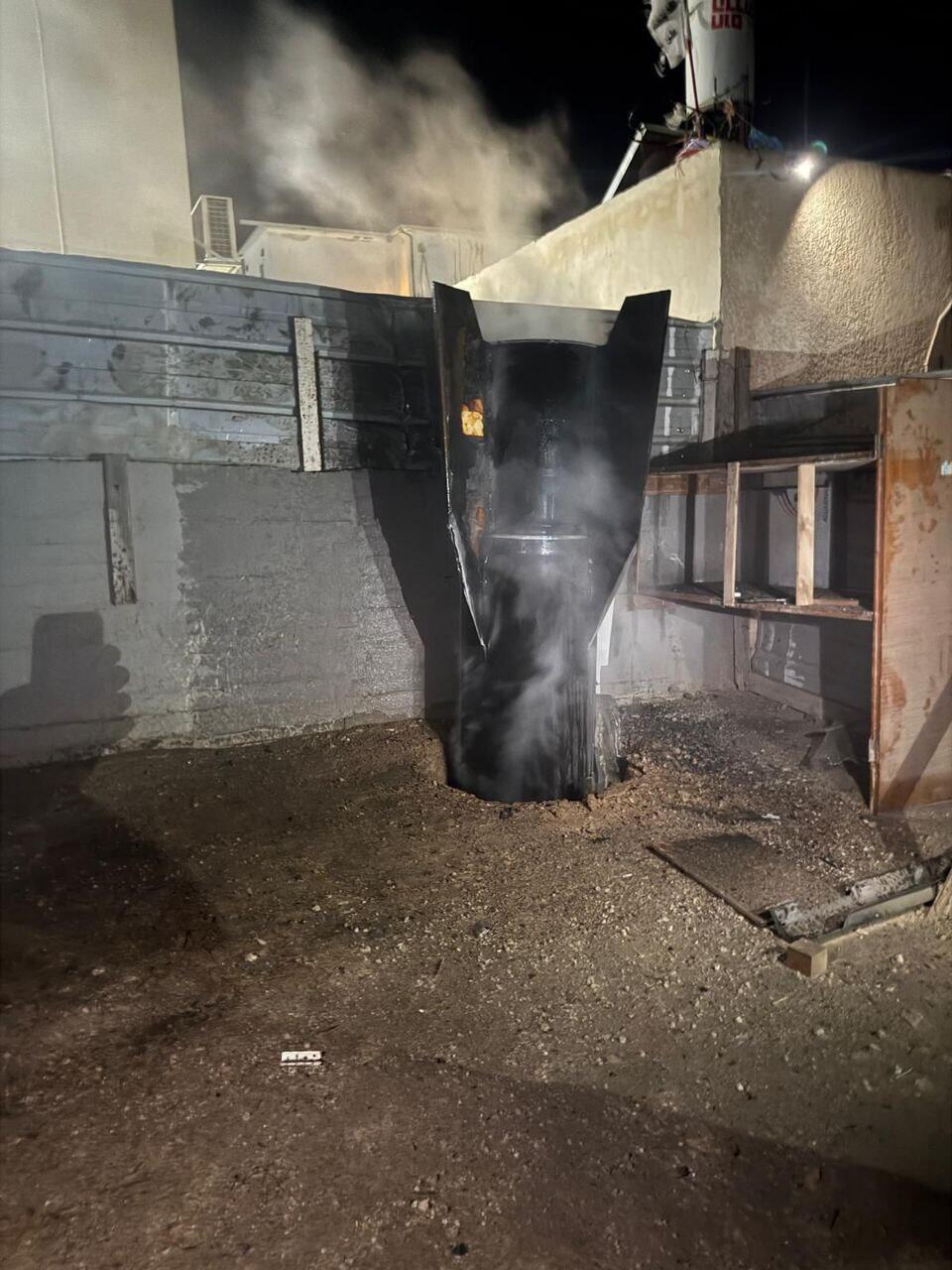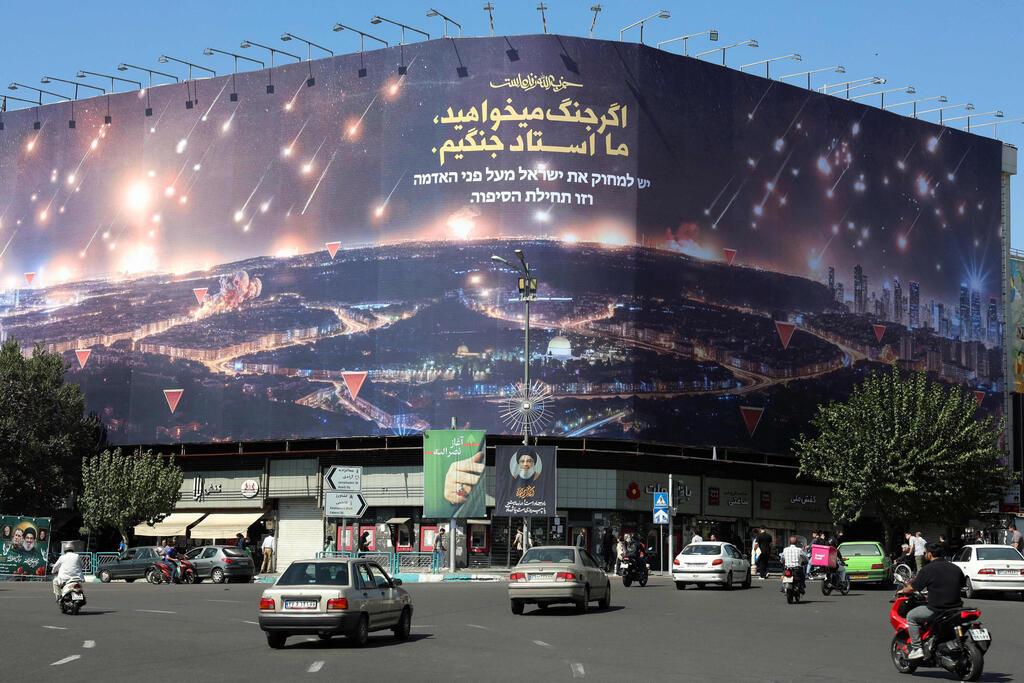Iranian ballistic missiles intercepted across Israel
(Video: Shalev Shalom, Yaron Brener, Gil Yochanan, Gil Nechushtan, Yair Sagi, Amit Shabi, Arnon Bosnani, Aviv Leshem, Maxim Oknin )
American officials indicated on Friday that an Israeli strike on Iran is likely imminent, following Iran's launch of over 180 ballistic missiles at Israel. The main question now, they said, is what role the U.S. will play in response to the Iranian attack.
While U.S. aircraft are not expected to participate in the strike, there will undoubtedly be coordination between Washington and Jerusalem, officials said. However, they added that this could still change, emphasizing that the U.S. is focused on protecting its forces and highlighting America’s role in intercepting Iranian missiles earlier this week.
“Miscalculations can happen,” one official noted. “We are certainly trying to prevent this from escalating into a regional war, but it’s clear the U.S. could be drawn in.”
The officials also underscored their understanding of Israel's need to respond, though they acknowledged the complexity of a potential strike on Iran’s nuclear facilities. “It’s not as simple as eliminating Iran’s nuclear infrastructure with a single bombing run. It’s very complicated,” they added.
Regardless, the officials made it clear that Israel has the U.S.’s full support. “Israel will do what it needs to do—but they don’t want a regional war either. Israel can rest assured it has our backing, and we’re in sync with them,” one official said.
A senior State Department official told CNN that Israel has not promised the Biden administration that an attack on Iran’s nuclear sites is "off the table" in response to the Iranian missile strike. "We hope to see wisdom alongside strength, but there are no guarantees,” he said.
When asked if Israel might strike Iran on the anniversary of the October 7 Hamas attack, the official responded: "It's hard to say. In some ways, I think Israel would want to avoid that timing, so if anything happens, it will likely be before or after."
He added, "The U.S. has worked for nearly a year to prevent this conflict from escalating into a larger war—and so far, we’ve managed that. But now we’re on the edge."
President Joe Biden also addressed the situation on Friday, saying “If I were in their shoes, I’d be thinking about other alternatives than striking oil fields.”
Unexpectedly joining the White House daily press briefing, Biden further said, “Israel won’t make an immediate decision; we’ll wait to see when they want to talk. The key thing right now is to avoid a full-scale war and rally our allies to contain it.”
Iran's state news agency SNN reported Friday that a senior official from Iran’s Revolutionary Guard warned, "If Israel makes a mistake, we will target its gas and energy facilities."
This came after Iranian Foreign Minister Abbas Araghchi, during a visit to Beirut where he met with Lebanese Prime Minister Najib Mikati, said, "We are determined to support Hezbollah, the government and the people of Lebanon. Israel is committing war crimes, and Arab and Islamic nations must mobilize international organizations against Israel."
He later added, "The attack on Israel was legitimate self-defense; we have no plans to continue—unless Israel decides to strike us."
In response, Israeli sources familiar with the situation said that Israel is planning a severe retaliation against Iran. "Their threats don’t affect us at all. We see tremendous pressure in Tehran—they’re panicking. Israel will strike hard, and they can keep threatening, but they will pay the price, with interest," the source said.
Meanwhile, the IDF reported that two Israeli soldiers were killed Tuesday night in northern Golan by a drone launched from Iraq. The victims were identified as Sergeant Daniel Aviv Chaim Sofer, 19, from Ashkelon, a communications officer trainee with Golani Brigade's 13th Battalion, and Corporal Tal Dror, 19, from Jerusalem, a communication specialist with the same battalion. Twenty-four other soldiers were injured, including one in serious condition, one in moderate condition, and 21 with minor injuries.
5 View gallery


Sergeant Daniel Aviv Chaim Sofer and Corporal Tal Dror
(Photo: IDF Spokesperson's Unit)
Another drone was launched that night but was intercepted. The pro-Iranian militia group Islamic Resistance in Iraq claimed responsibility for the attack, saying they carried out "three drone strikes on targets in the north." This marks the first time that drone strikes from Iraq have resulted in Israeli casualties.
Regarding the militia's actions in Iraq, sources said, "We will find the appropriate response, both for the drone attack on our soldiers in the Golan and otherwise. It's clear that Iran is activating all possible fronts, and we must be prepared for more surprises."
This incident follows a similar escalation from Yemen when a drone strike led to the death of an Israeli civilian. In response, the IDF struck the Houthi-controlled port of Hodeidah in Yemen. Defense Minister Yoav Gallant declared, "The first time they struck an Israeli, we retaliated. The fire is spreading across the Middle East."
Iran behind attacks on Israeli embassies
As anticipation mounts for Israel’s response to Iran’s missile attack, the opposition channel Iran International reported that Tehran is behind recent armed assaults on Israeli embassies in Sweden and Denmark.
A well-informed source told the channel that "the Islamic Republic used local criminal elements to carry out these terror attacks on embassies and continues its efforts to target tourists and Jewish and Israeli centers across Europe."
Referring to the arrest of a criminal gang in June responsible for shooting at the Israeli embassy in Sweden, the source said, "Investigations revealed that this group was also directed by agents of the Islamic Republic."
Following that incident, Swedish intelligence warned that the Iranian government was recruiting Swedish gang members to carry out violent acts against groups and individuals in the country.
The source emphasized that “hiring criminals to execute terror attacks on behalf of the republic against perceived enemies is one of Tehran’s preferred methods.” This approach, he added, allows Iran to distance itself from acts of terror and portray them as "mere criminal activities."
Get the Ynetnews app on your smartphone:









